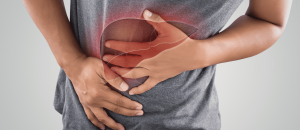What to Expect On Your First STD Screening
Should I Get Tested?
If you experience any symptoms such as sores on the genitals, discharge from the penis or vagina, itching, and burning during urination, it is important to be tested as soon as possible so you can begin treatment.
Unfortunately, the most common symptom of STDs are no symptoms at all! Just because an STD isn’t showing any symptoms, doesn’t mean that it is not harming your body. In fact, untreated chlamydia and gonorrhea in women can lead to chronic pelvic pain, ectopic pregnancy, and even infertility.
To be safe, you should have a regular annual screening in addition to screenings anytime you were at risk to contract an STD, i.e. having unprotected sex. The best scenario would be to get tested in between sexual partners in order to pinpoint where it came from and prevent yourself from spreading it to another sexual partner.
Your First Screening
Getting tested is quick and easy. You will visit one of our infectious disease specialists, Edwin DeJesus, M.D., Federico Hinestrosa, M.D., or Laura Armas-Kolostroubis, M.D. to discuss your symptoms and concerns. Your provider may take a blood sample, a swab, or ask you to urinate in a cup. At Orlando Immunology Center we promise fast, confidential, and accurate STD screenings.
Different STDs require different tests. The most common tests performed include:
- Physical exam to look for genital warts or bacterial vaginosis.
- Blood sample to identify HIV, syphilis, herpes, or hepatitis B.
- Urine tests to look for chlamydia and gonorrhea.
- Swab tests to examine cervix for HPV, herpes, chlamydia, gonorrhea, bacterial vaginosis, syphilis, and trichomoniasis.
- Discharge, tissue, cell, or saliva sample to test for HIV, trichomoniasis, and bacterial vaginosis.
After your appointment, the result of your tests will be shared with you as soon as possible. If your tests come back positive for an STD, we will work with you to develop a treatment plan that works best for you.
If you would like to be tested for STDs, give us a call at 407.647.3960 or request an appointment now.
More Articles
Dr. DeJesus Recognized by Orlando Magazine
For the 5th consecutive year, Dr. DeJesus has been recognized by his peers in Orlando Magazine for his work as medical director at Orlando Immunology Center. Dr. DeJesus is a graduate from the University of Puerto Rico, School of Medicine. He completed his Internal Medicine training and Infectious Disease fellowship at the Medical College of…
Read MoreJoin OIC at the 2015 AIDS Walk Orlando
Orlando Immunology Center is pleased to announce that we will again be sponsoring a team at this year’s 2015 AIDS Walk Orlando. If you are interested in joining our team or donating to this worthwhile cause, please let us know. Saturday, March 28, 2015 In Florida, 15% of all new HIV infections reported among females…
Read MoreOIC Wins Wave Award for Favorite Local Healthcare Professional
The Orlando Immunology Center (OIC) announced today they have received the Central Florida/Orlando 2015 Watermark Awards for Variety and Excellence (WAVE) Award for favorite local healthcare professional. “We see this as a huge honor and will continue to do everything in our power to help patients from all walks of life be healthy, happy and…
Read MoreWhat Is Hepatitis?
What is hepatitis? Are there different types of hepatitis? What are the symptoms of hepatitis? How is hepatitis treated? Hepatitis is a common liver condition that affects millions of Americans. The condition can be contracted from a wide range of causes, including viruses, alcohol use, drugs, or certain medical disorders. Out of the millions of…
Read MoreWhat Is Usually the First Sign of HIV?
What is HIV? What are the signs of an HIV infection? What is an HIV test? What if my HIV test result is positive? HIV, or the human immunodeficiency virus, exists within the bodies of more than 1.2 million Americans. Each year, more than 35,000 new infections emerge. If left untreated, the virus can lead to acquired…
Read MoreWhat Is HPV?
What is HPV? How do I know if I have HPV? How is HPV diagnosed? If I have HPV, am I going to get cancer? Can HPV be cured? How is HPV prevented? HPV stands for human papillomavirus, the most common sexually transmitted disease in the U.S. The illness currently affects 79 million HPV sufferers, many…
Read MoreQueen Bee Educates; Redefining Women’s HIV Advocacy
Who is the Queen Bee? A mother discovers her inner “Queen Bee” and creates a buzz worthy approach to educate women and children about good health and HIV. A honey of a story. Who is the Queen Bee? Dr. Andrea Dunn is a mother, a doctor, an active community member and the Founder, CEO, and…
Read MoreLatest HIV Research Every Women Needs
Discover the latest research, why it matters and what action you can take now! This is the latest HIV research every women needs. Yes, we said EVERY WOMAN. HIV doesn’t discriminate and neither should you. First of all, when you think of good health do you include sexual health? It’s time we did and knowledge is power. To…
Read MoreWhat are Genital Warts?
What are genital warts? What causes genital warts? What are the symptoms of genital warts? How are genital warts diagnosed and treated? Can I prevent genital warts? Each year, more than 20 million people in the United States are diagnosed with sexually transmitted infections (STIs). While this number may seem staggering on its own, STIs are even…
Read More- « Previous
- 1
- …
- 6
- 7
- 8








